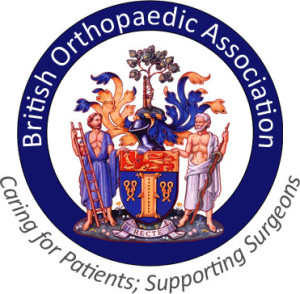The most common symptoms of arthritis include stiff and painful joints, muscle weakness, inflammation and limited mobility.
While these symptoms all point towards arthritis, a diagnosis is vital for getting the right treatment and restoring your health and wellbeing.
There are more than 100 different types of arthritis. The two most common are osteoarthritis and rheumatoid arthritis. More than 95% of Mr Nirav Shah’s patients have osteoarthritis.
Where to start with an arthritis diagnosis
The first step towards a diagnosis for arthritis is usually an appointment with your GP. They’ll begin by asking you some questions about your symptoms. For example, do your joints feel stiff after exercise or rest, and how have your symptoms changed over time. They’ll also look at your lifestyle and medical history.
Your GP will check your range of movement, and examine your joints for signs of inflammation and stiffness. If they suspect arthritis, they may request further tests to help determine the type:
- Blood tests for arthritis can check for the presence of antibodies and inflammation levels. Most patients with rheumatoid arthritis have antibodies known as rheumatoid factors in their blood.
- X-rays, ultrasound scans or MRI scans can highlight any physical changes in your joint. For example, a loss of cartilage indicates osteoarthritis.
While you wait for your results, your GP may recommend some conservative treatments immediately to ease your symptoms. These could include targeted exercises, anti-inflammatory drugs or pain medication.
Specialist referrals for arthritis
Once your arthritis has been confirmed and diagnosed, your GP will review your progress and treatment. They may refer you to a physiotherapist, who will help you to manage your pain and improve your strength and mobility.
If more proactive treatment or further investigations are needed, your GP might refer you to a rheumatologist or an orthopaedic surgeon. Rheumatologists specialise in diagnosing and treating arthritis. Orthopaedic surgeons, like Mr Shah, specialise in treating conditions that affect your musculoskeletal system, including your bones, muscles, tendons, ligaments and connective tissues.
If your arthritis is having a significant impact on your joints, you may be referred to an orthopaedic surgeon to discuss your options. Treatments for arthritis include arthroscopy and joint replacements. Cortisone injections can also provide temporary relief, and in some cases, they can help us with our diagnosis.
These options might sound intimidating, but the results can be life-changing. If you don’t want to wait for a referral from your GP, you can refer yourself for a private consultation with Mr Shah at any time.
For more advice on how to diagnose arthritis, or to arrange an appointment, contact our friendly team.




